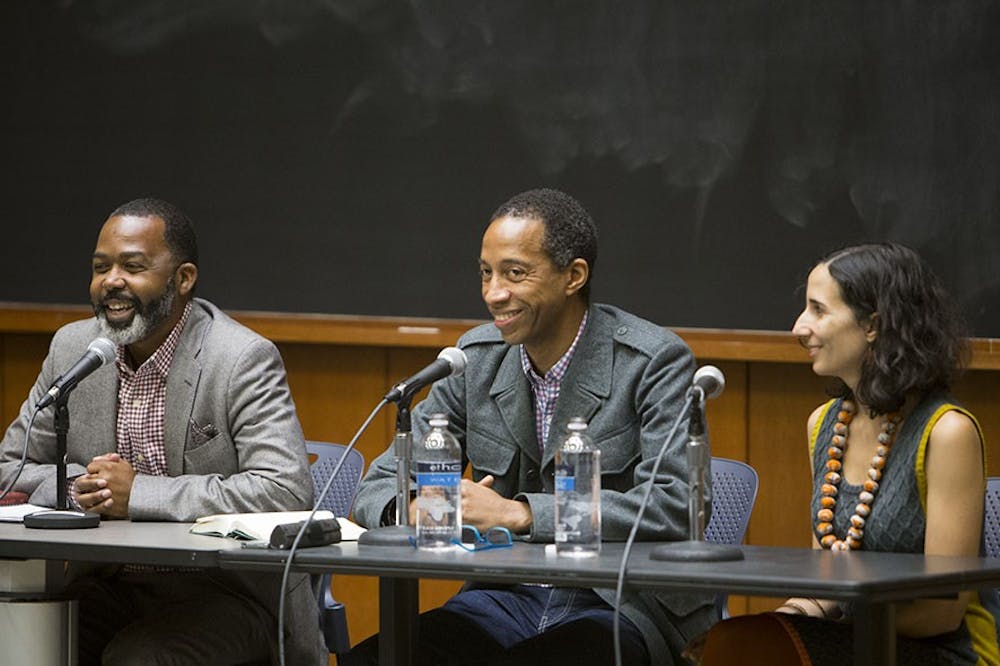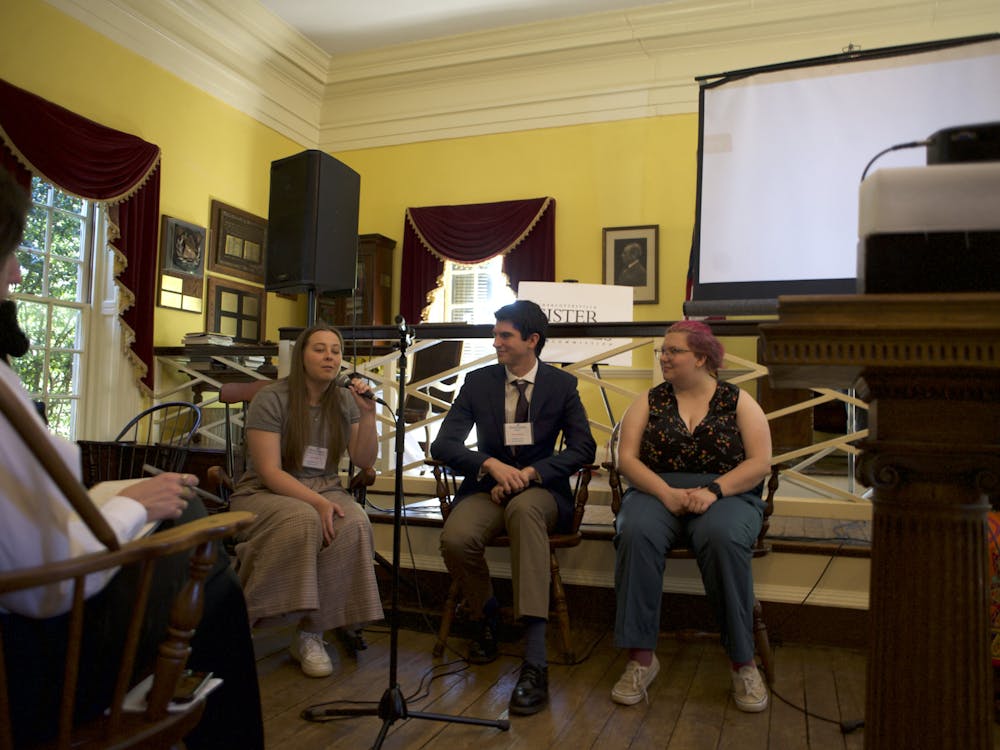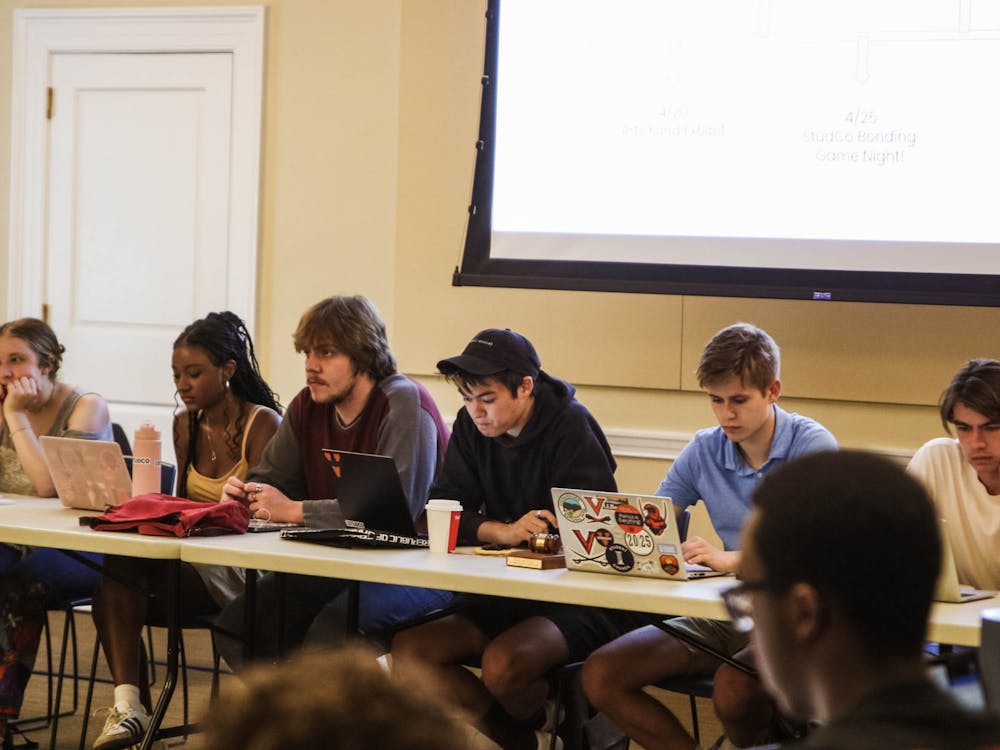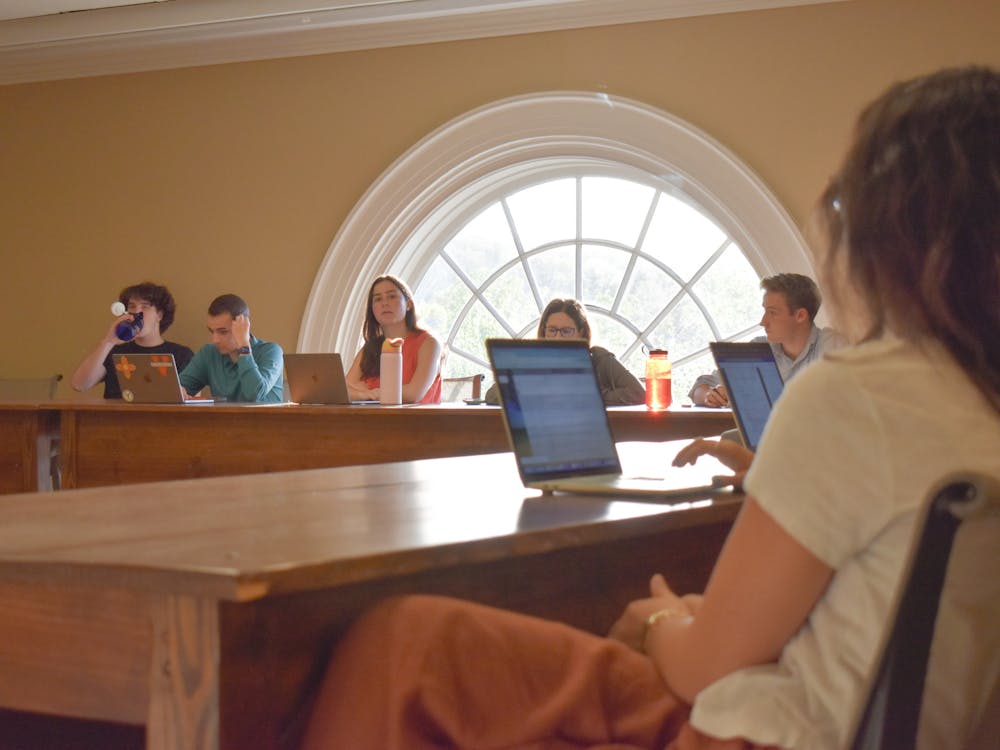The Institute for Advanced Studies in Culture, or IASC, hosted a panel and book signing Tuesday with Emily Raboteau and Garnette Cadogan, who are contributors to “The Fire This Time: A New Generation Speaks about Race.”
Raboteau, a professor at the City College of New York, and Cadogan, a visiting fellow at the IASC at the University, joined English Prof. Maurice Wallace, who participated in the panel as moderator.
The Office of Diversity and Equity, the Department of American Studies, the Carter G. Woodson Institute for African-American and African Studies, the American Center and the English Department co-sponsored the event, which was designed to create a dialogue about racism — especially in reference to “The Fire This Time.”
The book is an adaptation by Jesmyn Ward of James Baldwin’s “The Fire Next Time,” which was originally published in 1963. Ward’s book contains a collection of short stories and essays — including ones from Cadogan and Raboteau — designed to examine race in America similar to Baldwin’s approach, but with the inclusion of modern voices.
“The collections make a case for multiple voices,” Cadogan said. “I am hoping [students] will look at the book and see the diversity in the midst of unity and see that there are many different ways of talking about the same problem in many different approaches.”
Wallace began the panel discussion by posing questions about current encounters with racism, including what he identified as the everyday and mundane nature of racism.
Raboteau shared personal experiences regarding raising her children and how it inspired her contribution to Ward’s collection.
“I carry this fear as a mother for children who read as black, and that is a very common, normal feeling for the mother of black children,” Raboteau said. “It’s insane that that's a common feeling.”
The panel continued to discuss the language surrounding racial dialogue and social movements. Members of the audience were able to ask the panel questions, and Raboteau, Cadogan and Wallace touched on the role and influence of social media in today’s discourse on race.
Raboteau encouraged students to use social media and the Black Lives Matter movement to progress the dialogue about race on Grounds.
“I hope [students] would make connections to this book and the Black Lives Matter movement … [and] might think of a way to engage in a minor or major way with that movement, which is our contemporary movement to achieve liberty for black Americans,” Raboteau said. “I think there are ample opportunities to do so through social media.”
Cadogan said he hopes students will not only exercise inclusivity, but also consider broader questions such as “how do we coexist?” and “what does this generation have to contribute?” when pursuing a discussion about race.
“There’s this assumption that people who don't think like me, who don't vote like I vote … are people who are beyond dialogue or conversation, and I’m hoping [the book will] cause them to step back and think and explore conversations and dialogue,” Cadogan said. “[I hope] that conversations would not just be about race, but other things because there is so much at stake in conversations at universities now.”
Third-year Curry student Patrick Talamantes said he was very impressed with the consideration Raboteau and Cadogan exhibited when fielding questions from the audience.
“[It was interesting] seeing these issues articulated from the perspective of a writer because I think it's a different articulation and a different language that they use to communicate, and the value and importance of this movement,” Talamantes said. “I thought they dealt with the [audience] questions very well and very thoughtfully, even when there were questions that may have been problematic.”
Wallace said he was pleased with the dialogue as well, and said he hopes the University community can replicate similar discussions.
“The care with which they managed to field questions and offer slow, deliberate responses without sloganeering, I think we could all benefit from that,” Wallace said. “I think what we require in a community like ours is civility, however, and often people reject what they perceive as political correctness, and thereby relieve themselves the responsibility to the question — I don't expect anyone to toe an ideological line, but I do hope people will be honest and civil in their conversations.”





